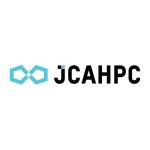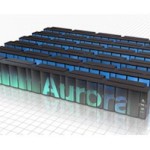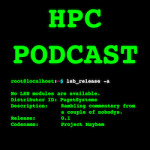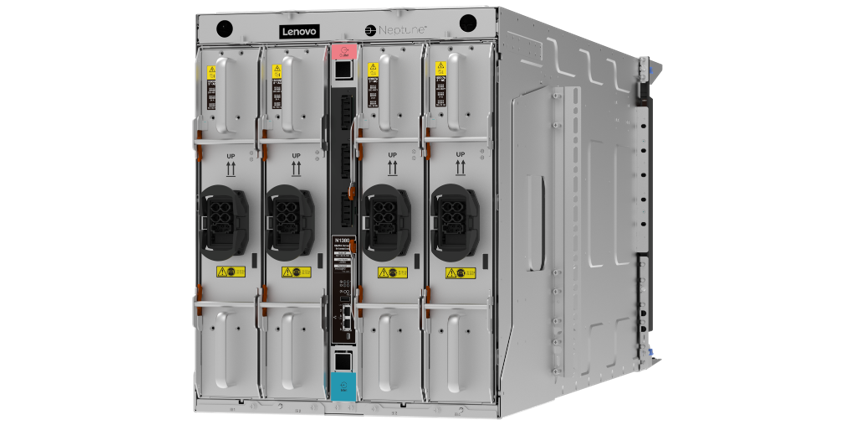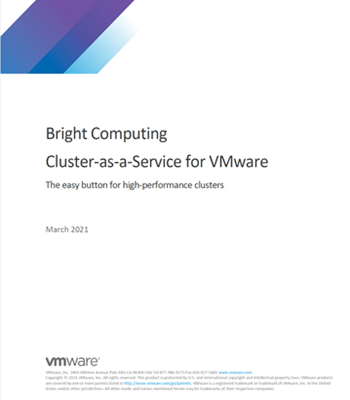“With an imminent switchover to a new Cray system with next-generation Intel Xeon Phi Processors (codenamed Knights Landing) planned for October, the ACCMS team at Kyoto University is eagerly looking forward to a potential two-fold application performance improvements from its new system. But the lab is also well aware that there is significant recoding work ahead before the promise of the new manycore technology can be realized.”
Kyoto University Thinks Widening SIMD Will be Key to Performance Gains in New Intel Xeon Phi processor-based Cray System
Intel Furthers Machine Learning Capabilities
“Intel provided a wealth of machine learning announcements following the Intel Xeon Phi processor (formerly known as Knights Landing) announcement at ISC’16. Building upon the various technologies in Intel Scalable System Framework, the machine learning community can expect up to 38% better scaling over GPU-accelerated machine learning and an up to 50x speedup when using 128 Intel Xeon Phi nodes compared to a single Intel Xeon Phi node. The company also announced an up to 30x improvement in inference performance (also known as scoring or prediction) on the Intel Xeon E5 product family due to an optimized Intel Caffe plus Intel Math Kernel Library (Intel® MKL) package.”
Univa Grid Engine Adds Support for Docker Containers & Knights Landing
Today Univa announced the general availably of its Grid Engine 8.4.0 product. Enterprises can now automatically dispatch and run jobs in Docker containers, from a user specified Docker image, on a Univa Grid Engine cluster. This significant update simplifies running complex applications in a Grid Engine cluster and reduces configuration and OS issues. Grid Engine 8.4.0 isolates user applications into their own container, avoiding conflict with other jobs on the system and enables legacy applications in Docker containers and non-container applications to run in the same cluster.
Radio Free HPC News Roundup for Friday the 13th
In this podcast, the Radio Free HPC team looks at the news highlights for the week leading up to Friday the 13th of May, 2016. Highlights include a 25 Petaflop Fujitsu supercomputer coming to Japan, an OpenPOWER Summit coming to Europe, and fighting the Zombie Apocalypse with HPC.
Fujitsu to Build 25 Petaflop Supercomputer at JCAHPC in Japan
Today Fujitsu announced an order for a 25 Petaflop supercomputer system from the University of Tokyo and the University of Tsukuba. Powered by Intel Knights Landing processors, the “T2K Open Supercomputer” will be deployed at the Joint Center for Advanced High-Performance Computing (JCAHPC), which the two universities jointly operate. “The new supercomputer will be an x86 cluster system consisting of 8,208 of the latest FUJITSU Server PRIMERGY x86 servers running next-generation Intel Xeon Phi processors. Due to be completely operational in December 2016, the system is expected to be Japan’s highest-performance supercomputer.”
Paving the Way for Theta and Aurora
In this special guest feature, John Kirkley writes that Argonne is already building code for their future Theta and Aurora supercomputers based on Intel Knights Landing. “One of the ALCF’s primary tasks is to help prepare key applications for two advanced supercomputers. One is the 8.5-petaflops Theta system based on the upcoming Intel® Xeon Phi™ processor, code-named Knights Landing (KNL) and due for deployment this year. The other is a larger 180-petaflops Aurora supercomputer scheduled for 2018 using Intel Xeon Phi processors, code-named Knights Hill. A key goal is to solidify libraries and other essential elements, such as compilers and debuggers that support the systems’ current and future production applications.”
HPC Podcast Looks at Intel’s Pending Distribution of Python
In this HPC Podcast, Don Kinhorn and Chris Stevens from Puget Systems discuss the boom in FPGAs at SC15 as well as Intel’s announcement that the company is going to maintain a build of Python. “Python is a pretty important programming language. It has a large and growing number of useful libraries for mathematical/scientific computing and machine learning, NumPy, SciPy, pandas, Scikit-learn, PySpark, theano, and more.”
Changes Afoot from the HPC Crystal Ball
In this special guest feature from Scientific Computing World, Andrew Jones from NAG looks ahead at what 2016 has in store for HPC and finds people, not technology, to be the most important issue. “A disconcertingly large proportion of the software used in computational science and engineering today was written for friendlier and less complex technology. An explosion of attention is needed to drag software into a state where it can effectively deliver science using future HPC platforms.”
Video: Optimizing Applications for the CORI Supercomputer at NERSC
In this video from SC15, NERSC shares its experience on optimizing applications to run on the new Intel Xeon Phi processors (code name Knights Landing) that will empower the Cori supercomputer by the summer of 2016. “A key goal of the Cori Phase 1 system is to support the increasingly data-intensive computing needs of NERSC users. Toward this end, Phase 1 of Cori will feature more than 1,400 Intel Haswell compute nodes, each with 128 gigabytes of memory per node. The system will provide about the same sustained application performance as NERSC’s Hopper system, which will be retired later this year. The Cori interconnect will have a dragonfly topology based on the Aries interconnect, identical to NERSC’s Edison system.”
Video: Theta & Aurora – Big Systems for Big Science
“Aurora’s revolutionary architecture features Intel’s HPC scalable system framework and 2nd generation Intel Omni-Path Fabric. The system will have a combined total of over 8 Petabytes of on package high bandwidth memory and persistent memory, connected and communicating via a high-performance system fabric to achieve landmark throughput. The nodes will be linked to a dedicated burst buffer and a high-performance parallel storage solution. A second system, named Theta, will be delivered in 2016. Theta will be based on Intel’s second-generation Xeon Phi processor and will serve as an early production system for the ALCF.”





